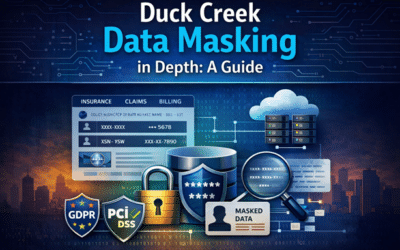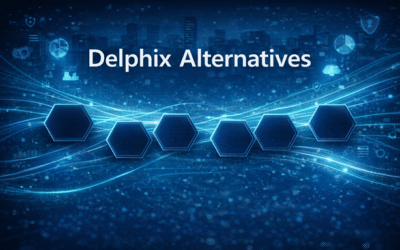Data Security (Scale and Bees)
Data security, The problem is scale & a lack of bees
One of the biggest challenges of securing one’s enterprise data is the sheer volume. Think about it. Hundred (perhaps Thousands) of Applications, Thousands (perhaps Tens of Thousands) of Instances across Development and Test and within each millions of data point, many of which contain PII (Personally Identifiable Information).Sounds scary huh.
And then, even if you know what to secure (which is a rather “big if”) and independent of what expensive masking tools you have (IBM Optim, Informatica, Compuware, CA etc), there is the task of building the remediation scripts. Which typically take months (8-12 weeks) per platform and is often prone to error and omissions a finally executing them. A set of tasks that are usually done by a centralized team of data “experts”, with a single TDM tool and delivered in a sequential fashion.Do the Maths!
The “Small Bank of Narnia” with 100 key platforms would take 16* years to be compliant. *100 Platforms x 2 months / 12 (months in a year) Or more likely, simply due to “do-ability” (or lack of “do-ability) the organization will just do half a dozen important ones and hope audit, compliance and/or the regulators don’t notice.Centralization is Bad
However, the problem is here is not just scale. The biggest issue is the inability to parallelize (federate) the effort. Imagine each of the 100 platform teams/tribes could do the masking themselves.- The skills & method to Understand Data
- The skills & method to accurately remediate the Data
- The technology to execute these exercises in Parallel
Our Eureka Moment
These somewhat “obvious” observation lead to our Eureka moment and design or Data Compliance Suite. DCS was designed& built to go “against the grain” of traditional TDM tools and methods and deliver four key things:- Simplicity of Use
- Hands-Off
- Parallel Data Ops
- Enterprise Visibility
Our Architecture
Enov8 DCS is a new generation Test Data Management / Data Compliance Solution that was built from the ground up to address the needs of both Technical (engineering) & Non-Technical (audit & compliance) staff alike. Designed with a pleasant front-end and with “guard-rail like” navigation, DCS takes the users through a best-practice Data Securitization journey. Which includes:- Use of “automated intelligence” to understand your Data & Identify Risks.
- Automatic (on the fly) build of masking or encryption scripts.
- Ease of execution, both Just in time & scheduled.
- Automatically Validating (Testing) Data is Compliant and void of PII.
- Delivery of Compliance Dashboards & Reporting showing coverage and status.
- Use of “Worker Bees” to spread DataOps load across the network
- Provision of Rest-API & Webhooks so compliance can be added to your delivery-tool chain.
To Summarize
In the “good old days” we all had a single team of “subject matter experts” to mask data. And in a company with a handful of platforms, that would probably still work. However, organizations IT & Test Environments are complicated nowadays. Today even medium sized organizations can have hundreds of data platforms with Gigabytes or Terabytes of data. If your organization want to be “truly” compliant, there is a need to move away from traditionally centralist and serial methods. It is time to automate, federate and parallelize your Data Ops. Learn more about DCS.Relevant Articles
A Data Loss Prevention Security Checklist for Enterprise
Companies today are collecting more data than ever and using analytics to influence everything from sales and marketing to research and development. In fact, data is now one of the most valuable assets that a company can own. Yet while data is more important...
Enterprise Architecture Principles: 13 for Resilience
Modern enterprises operate in environments defined by constant change. Cloud adoption, regulatory pressure, cybersecurity threats, distributed teams, and accelerating release cycles all increase the complexity of the IT landscape. In this environment, resilience is no...
Duck Creek Data Masking in Depth: A Guide
Insurance platforms are data-heavy by design. Customer identities, policy records, payment details, underwriting notes, claims histories. In a Duck Creek ecosystem, that data powers critical business processes across policy, billing, and claims. It also creates...
What is a Microservice Catalog? A Detailed Explanation
Microservices have revolutionized the way modern software systems are designed and developed. Breaking down complex applications into smaller, independently deployable services brings numerous benefits in terms of scalability, flexibility, and maintainability....
Delphix Alternatives: 7 to Consider in 2026
If you’re searching for delphix alternatives, you’re likely evaluating your test data management strategy. Delphix is widely recognized for data virtualization and masking, but it is not the only option available. As enterprise environments grow more complex and...
Enterprise Release Manager: A Guide to the Role
Do you want your company to scale efficiently? Look for an enterprise release manager (ERM). An ERM protects and manages the movements of releases in multiple environments. This includes build, test, and production environments. They ensure that there is a proper...









